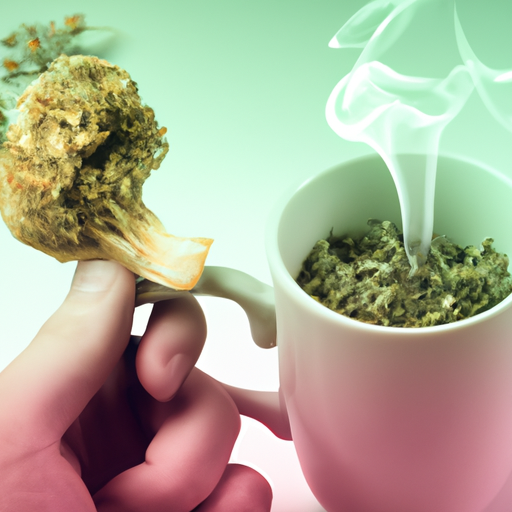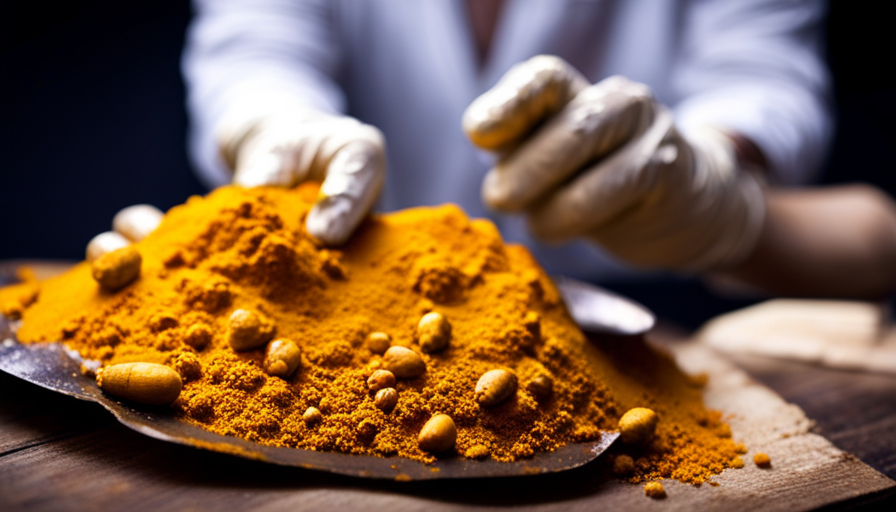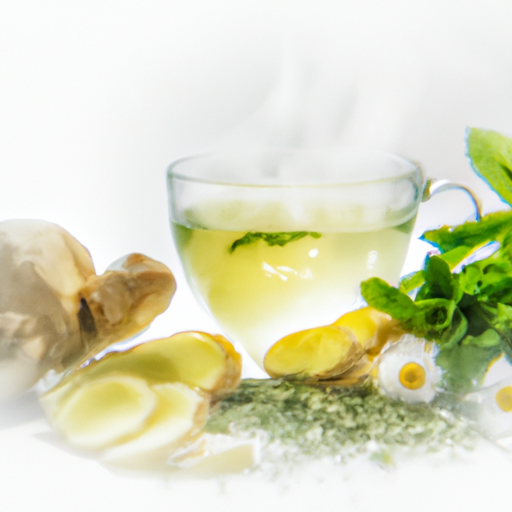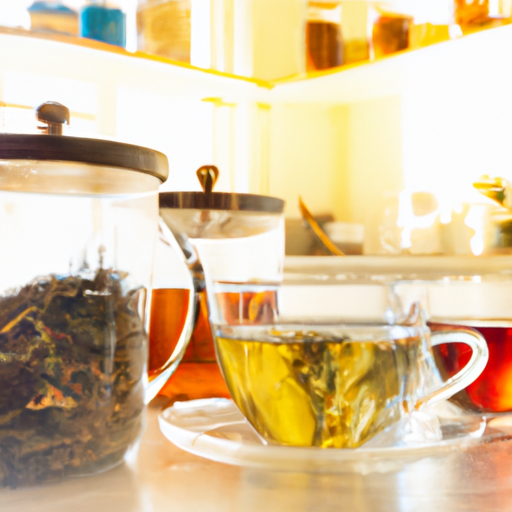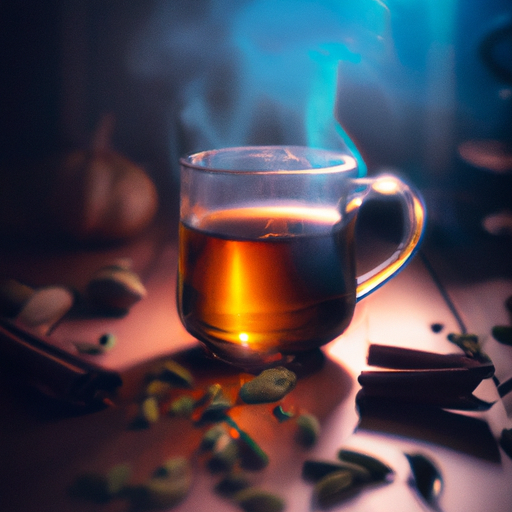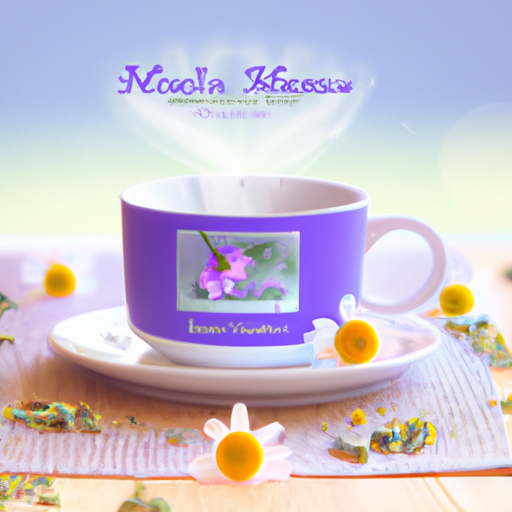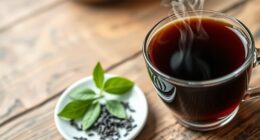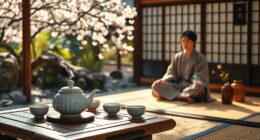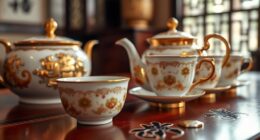Have you ever encountered a tea that tickles your nose with its pungent aroma, leaving you curious and perhaps a little hesitant to take a sip? Welcome to the world of stinky herbal teas. These unique beverages possess a distinct odor that sets them apart from your typical cup of tea.
Picture yourself stepping into a fragrant herb garden, where the air is filled with a medley of earthy, musky, and sometimes even funky scents. That’s precisely the experience of indulging in a stinky herbal tea. But what exactly causes these intriguing aromas?
In this article, we will delve into the secrets behind the intoxicating smells of stinky herbal teas. From the common types to their health benefits, brewing techniques to storage tips, and even exploring exotic blends, prepare to unravel the fascinating world of stinky herbal teas. Get ready to embrace your adventurous side and discover the hidden delights these teas have to offer.
Key Takeaways
- Stinky herbal teas have a distinct odor caused by sulfur compounds and strong-smelling ingredients like ginger or garlic.
- The smell of a tea greatly influences its taste.
- Stinky herbal teas have cultural significance and offer numerous health benefits.
- Proper handling and storage are essential to maintain freshness and potency.
What Causes the Distinct Odor in Stinky Herbal Teas?
Do you ever wonder what exactly makes those stinky herbal teas smell so pungent? Well, the causes of the unpleasant odor in herbal teas can vary depending on the type of tea and the ingredients used.
One of the main culprits is the presence of sulfur compounds, which are naturally occurring in certain herbs. These sulfur compounds can give off a strong, pungent smell that some people find unpleasant.
Additionally, herbal teas that contain strong-smelling ingredients like ginger, garlic, or fenugreek can contribute to the overall odor.
The impact of aroma on the tea drinking experience is significant. The smell of a tea can greatly influence our perception of its taste. When we take a sip, our taste buds work in tandem with our sense of smell to create a unique flavor experience. The unpleasant odor of stinky herbal teas can sometimes overpower the taste, making it difficult to fully enjoy the beverage.
Now that you understand what causes the distinct odor in stinky herbal teas, let’s move on to the next section where we will explore the common types of stinky herbal teas.
Common Types of Stinky Herbal Teas
One of the most popular varieties of stinky herbal teas is peppermint. It’s well-known for its refreshing and invigorating aroma. Peppermint tea has a distinct, strong scent that can be quite powerful. It’s made from the leaves of the peppermint plant and has a refreshing minty flavor.
In addition to peppermint, there are other types of stinky herbal teas that offer different flavors and aromas. Some examples include chamomile, which has a floral and earthy scent, and ginger, which has a spicy and warming aroma. These teas have their own unique tastes and can provide a pleasant alternative to traditional herbal teas.
While stinky herbal teas can be enjoyed for their distinctive flavors and scents, it’s important to be aware of their potential side effects. Some people may experience allergic reactions or digestive issues when consuming these teas. It’s always recommended to consult with a healthcare professional before adding stinky herbal teas to your diet, especially if you have any pre-existing health conditions or are taking medications.
With a better understanding of the different flavors and potential side effects of stinky herbal teas, we can now explore the question: is it safe to drink them?
Is It Safe to Drink Stinky Herbal Teas?
To ensure your well-being, it’s essential to consider the safety of indulging in these aromatic infusions that awaken your senses and offer a unique taste experience. When it comes to stinky herbal teas, there can be potential risks associated with consuming spoiled blends. Just like any other food or beverage, herbal teas can go bad and develop unpleasant odors that indicate spoilage.
These odors can be caused by mold, bacteria, or other contaminants that may have entered the tea leaves during processing or storage. Consuming spoiled herbal teas can lead to food poisoning symptoms such as nausea, vomiting, and diarrhea.
To identify and prevent the formation of stinky odors in herbal teas, it’s important to store them properly in airtight containers away from moisture and sunlight. Additionally, check the expiration date and inspect the tea leaves for any signs of mold or discoloration before brewing. If you notice any strange or off-putting smells, it’s best to discard the tea to avoid potential health risks.
In the next section, we will explore how to brew stinky herbal teas for optimal flavor, ensuring a delightful and aromatic tea-drinking experience.
How to Brew Stinky Herbal Teas for Optimal Flavor
Experience the full flavor and aroma of these unique infusions by brewing them properly, ensuring a delightful and invigorating tea-drinking experience. To achieve the optimal flavor of stinky herbal teas, follow these brewing techniques:
-
Water temperature: Different herbal teas require different water temperatures for brewing. For example, delicate floral teas like chamomile or lavender should be brewed with water just below boiling point, around 180°F. On the other hand, robust herbal teas like peppermint or ginger can be brewed with boiling water.
-
Steeping time: The steeping time also varies depending on the herbal tea. Generally, stinky herbal teas require a longer steeping time to extract their full flavor. For example, hibiscus tea should be steeped for about 5-7 minutes, while a strong lemongrass tea may require 10-15 minutes.
-
Tea-to-water ratio: Finding the right balance between tea leaves and water is crucial. Use approximately 1 teaspoon of dried herbs per 8 ounces of water. Adjust the amount according to your preference for a stronger or milder flavor.
-
Experiment with herbal tea recipes: Don’t be afraid to get creative with your stinky herbal teas. Try blending different herbs together or adding a touch of honey or lemon for a unique flavor profile.
By mastering these brewing techniques and exploring different herbal tea recipes, you can unlock the full potential of stinky herbal teas and enhance your tea-drinking experience.
Transitioning to the subsequent section about the health benefits of stinky herbal teas, let’s now delve into the remarkable ways these teas can benefit our well-being.
The Health Benefits of Stinky Herbal Teas
Unleashing a world of wellness, these aromatic infusions offer a myriad of health benefits that can invigorate and rejuvenate the mind and body.
Stinky herbal teas, despite their pungent aroma controversy, have been enjoyed for centuries due to their cultural significance and numerous health benefits.
The unique, strong smell of stinky herbal teas is an acquired taste for some, but it’s precisely this aroma that sets them apart. These teas are often made from herbs and plants with strong scents, such as ginger, lemongrass, and peppermint. The powerful aroma not only enhances the overall experience of drinking the tea but also has therapeutic effects. The scent can help calm the mind, relieve stress, and even alleviate symptoms of anxiety and depression.
In addition to their aromatic properties, stinky herbal teas are known for their various health benefits. They can aid digestion, soothe upset stomachs, and reduce bloating. Some stinky herbal teas, like chamomile and lavender, have natural sedative properties that promote better sleep. These teas are also rich in antioxidants, which can boost the immune system and protect against free radicals.
When choosing and storing stinky herbal teas, it’s important to consider the freshness and quality of the ingredients. Look for teas that are packaged in airtight containers to maintain their potency and aroma. Keep them away from heat, light, and moisture to preserve their flavor and effectiveness.
Transitioning into the subsequent section about tips for choosing and storing stinky herbal teas, it’s essential to understand the importance of proper handling to fully enjoy their benefits.
Tips for Choosing and Storing Stinky Herbal Teas
When it comes to selecting and preserving your favorite funky brews, it’s crucial to pay attention to the freshness and quality of the ingredients. Here are three tips to help you choose and store stinky herbal teas effectively:
-
Check the expiration date: Before purchasing any herbal tea, always check the expiration date. Freshness is key when it comes to stinky herbal teas, as they can lose their aroma and flavor over time. Look for teas with a longer shelf life to ensure you can enjoy them for a longer period.
-
Consider the packaging: Opt for teas that come in airtight packaging, such as sealed bags or jars. Airtight packaging helps to preserve the freshness and aroma of the tea leaves, preventing them from absorbing odors and moisture that may affect their quality.
-
Store properly: After purchasing your stinky herbal tea, store it in a cool, dark place away from direct sunlight and strong odors. Exposure to light and strong smells can degrade the flavors and aromas of the tea. Additionally, make sure to seal the packaging tightly after each use to maintain freshness.
By following these tips, you can ensure that your chosen stinky herbal teas are of the highest quality and retain their unique and exotic flavors. In the next section, we will explore the world of unique and exotic stinky herbal tea blends.
Exploring Unique and Exotic Stinky Herbal Tea Blends
Indulge in the delightful world of extraordinary and rare blends of aromatic herbal infusions. When it comes to stinky herbal teas, there are some unique and exotic options that will surely satisfy your taste buds. These blends offer not only a wide range of flavors but also a cultural significance that adds to their allure.
One such blend is the Tibetan Butter Tea. It’s made by mixing tea leaves with yak butter and salt. This unique flavor profile isn’t just delicious but also holds great cultural significance in Tibetan culture. It’s often served as a welcome drink to guests and is believed to provide warmth and energy in the harsh mountainous regions.
Another exotic blend is the Korean Mugwort Tea. Made from the leaves of the mugwort plant, this tea has a strong earthy aroma and a slightly bitter taste. It’s known for its medicinal properties and is often used to aid digestion and relieve menstrual cramps.
Lastly, the Moroccan Mint Tea is a refreshing and invigorating blend that combines green tea leaves with fresh mint leaves and sugar. It’s a staple in Moroccan culture and is often served as a gesture of hospitality. The combination of the minty freshness with the slight bitterness of the green tea creates a unique and delightful flavor profile.
So, if you’re looking to explore new and exciting flavors, stinky herbal teas with their unique flavor profiles and cultural significance are definitely worth a try.
Frequently Asked Questions
Can stinky herbal teas cause any adverse health effects?
Yes, stinky herbal teas can cause adverse health effects. Some ingredients can irritate the digestive system or cause allergic reactions. It is important to be cautious when consuming these teas to minimize potential health risks.
Are there any specific herbs that are commonly used in stinky herbal teas?
Some specific herbs commonly used in stinky herbal teas include ginger, fennel, and peppermint. These herbs have been known to provide benefits for digestion, such as relieving bloating and soothing an upset stomach.
How can I enhance the flavor of stinky herbal teas while brewing them?
To enhance the flavor of stinky herbal teas while brewing, I recommend adding a touch of honey. The sweetness will counterbalance the strong aroma and create a more balanced and enjoyable tea experience.
Are there any potential side effects of consuming stinky herbal teas?
There may be potential side effects of consuming stinky herbal teas, such as digestive issues or allergic reactions. However, when brewed properly using the best methods, these teas can offer various potential benefits for overall health and well-being.
Where can I find unique and exotic stinky herbal tea blends?
For unique and exotic stinky herbal tea blends, I recommend visiting exotic tea shops. They often have a variety of herbal tea recipes that offer distinct and aromatic flavors.
Conclusion
In conclusion, stinky herbal teas may not be everyone’s cup of tea, but they certainly offer a unique and exotic experience for those willing to explore. While the distinct odor may initially deter some, it’s important to remember that the aroma is often a result of the powerful and beneficial compounds found in these teas. By brewing them properly and choosing high-quality blends, you can unlock the optimal flavor and reap the health benefits they offer.
So, don’t let the stink scare you away, embrace the adventure and discover a whole new world of herbal teas.

